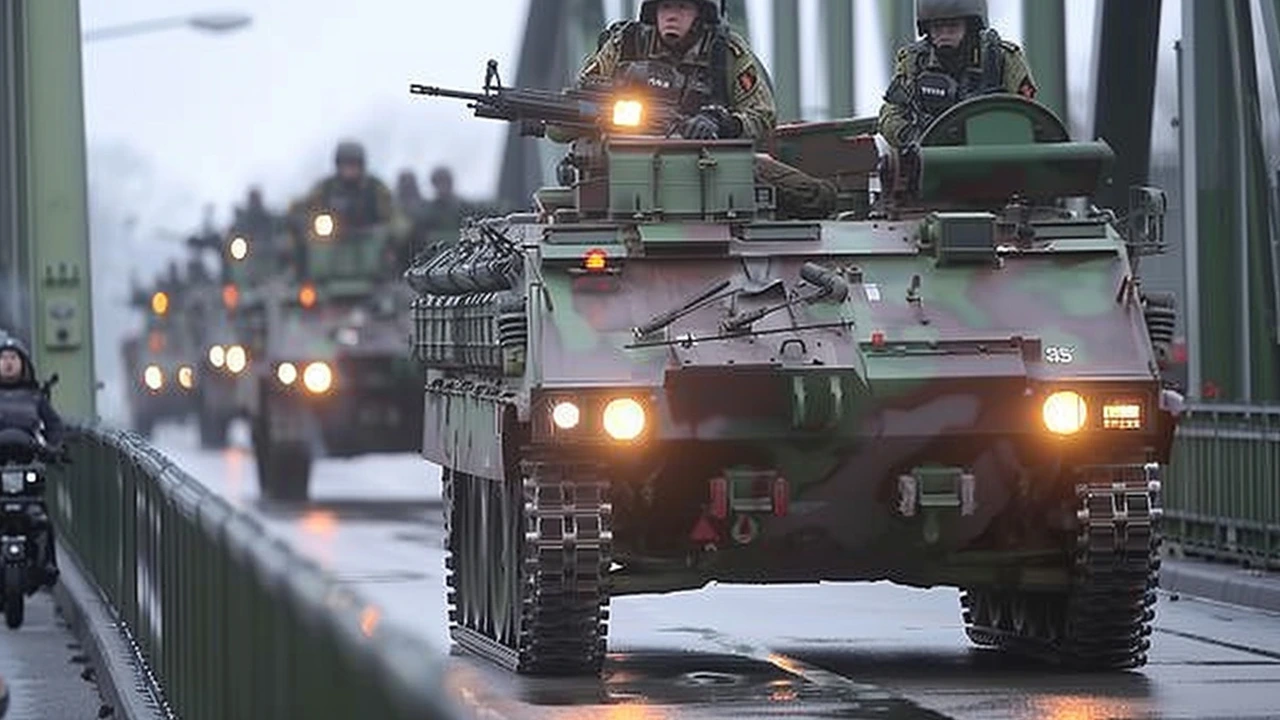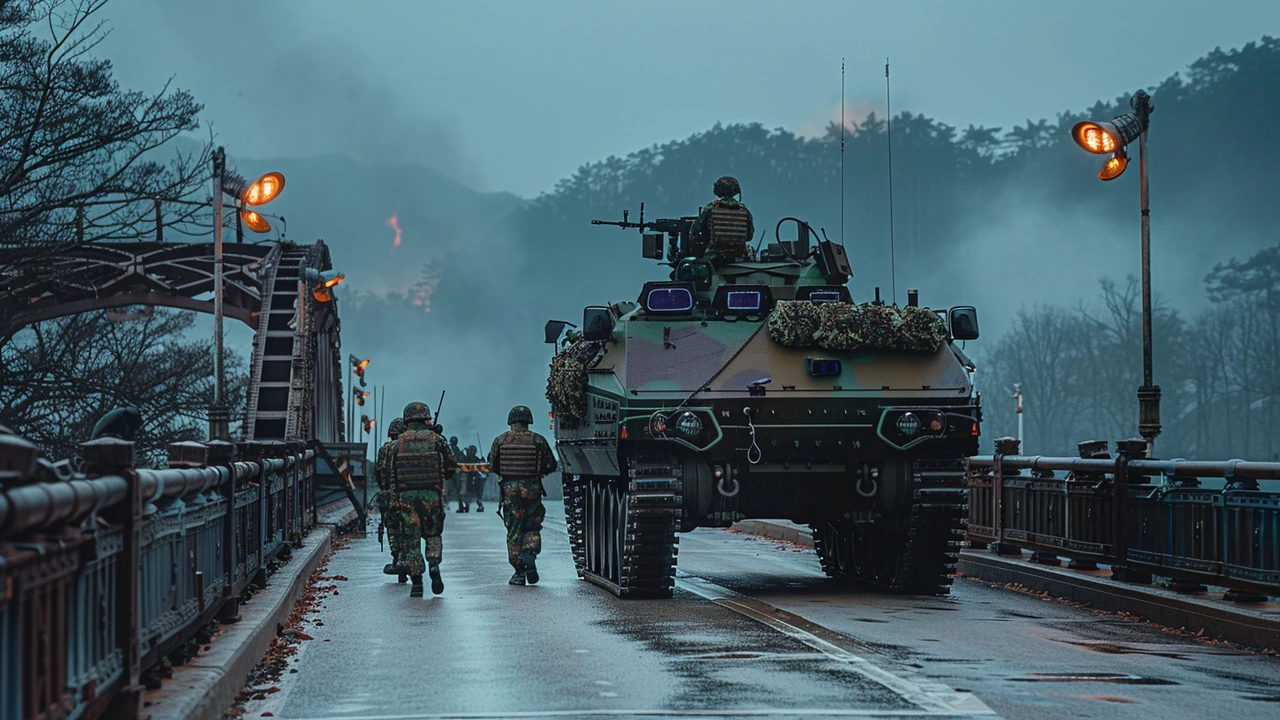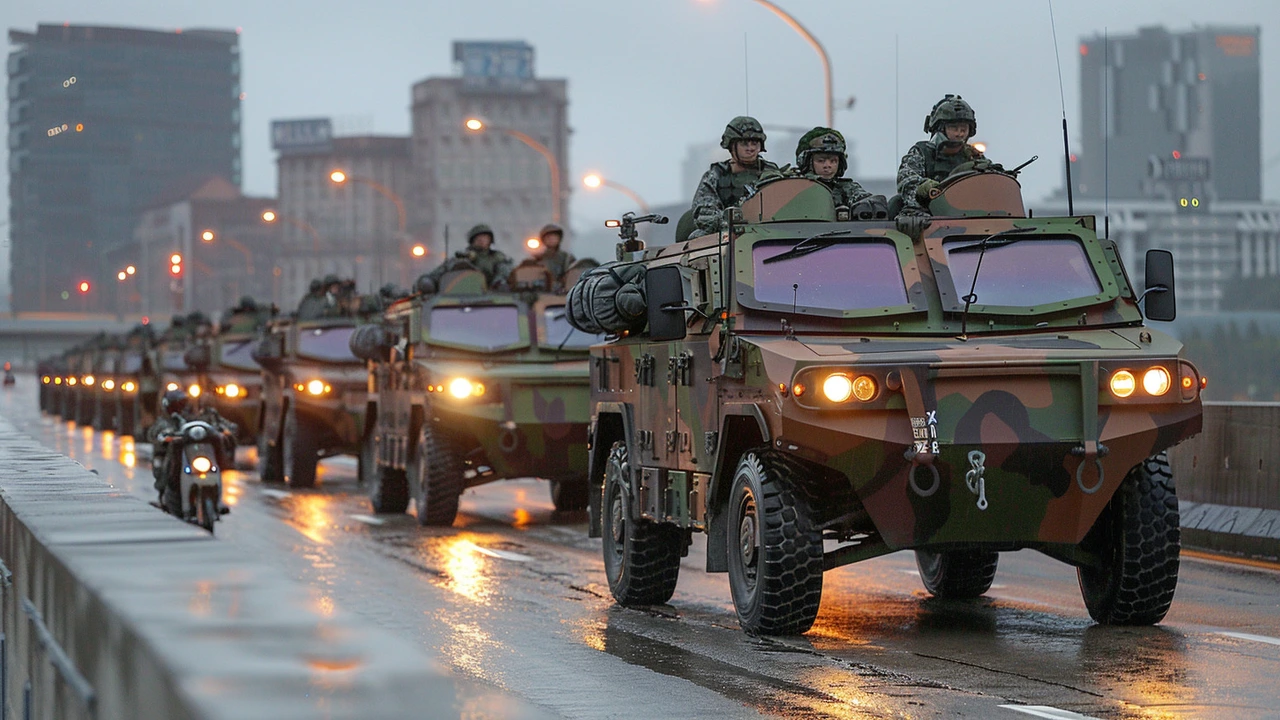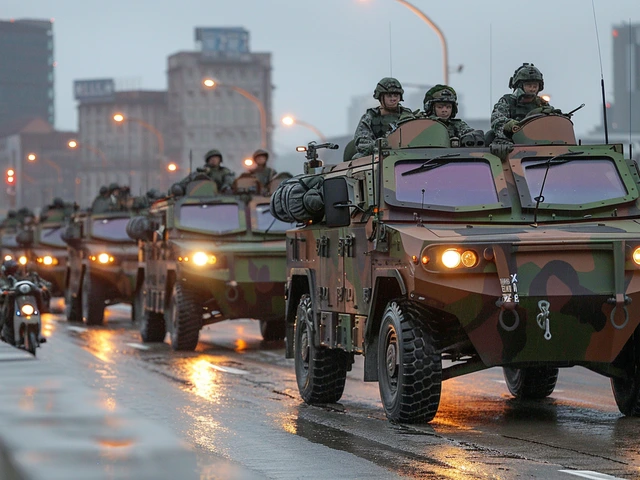China's Stern Warning Over Taiwan
In an alarming escalation of rhetoric and military activity, China has issued a stark warning of the potential for war over Taiwan. This intense proclamation comes amid large-scale military drills taking place around the island nation, which Beijing views as an integral part of its territory and is determined to reunify, by force if necessary. The exercises, notably named 'Joint Sword-2024A,' are being seen as a robust demonstration of China's military prowess and an unambiguous signal of its intentions.
Military Drills as a Show of Force
The Chinese military exercises, comprising complex maneuvers involving warships, fighter jets, and bombers, illustrate what Beijing claims are rehearsals for seizing Taiwan. These drills, launched just three days after Taiwan's new president Lai Ching-te took office, underline China's resolve to counter what it perceives as moves towards independence by Taiwan's current administration. The drills, codenamed ‘Joint Sword-2024A,’ have been characterized by China as necessary steps to punish Taiwan's independence advocates and deter any secessionist movements.
Political Tensions on the Rise
China's warning and military activities are a direct response to Taiwan President Lai Ching-te's inauguration speech, which Beijing has condemned as a 'confession of independence.' In his speech, Lai underscored Taiwan's democratic values and its autonomy, statements Beijing views as defiant and provocative. As a result, Chinese authorities have labeled Lai a 'dangerous separatist' and vowed to push for reunification, branding the military drills as a consequence for the 'separatist acts' of the Taiwan independence forces.

Global Reactions and Appeals
International reactions have been swift and concerned, with both the United States and the United Nations calling for restraint and urging diplomacy to de-escalate the situation. The U.S., in particular, has a vested interest in the region's stability and has reiterated its commitment to supporting Taiwan's security. However, Beijing has dismissed these appeals, viewing them as interference in what it considers a domestic issue. This position has only intensified the standoff, with analysts suggesting the possibility of extended war games or even missile launches near Taiwan.
Strategic Implications
The ongoing tensions and military posturing have significant implications for the region. Analysts suggest that the drills not only serve as a show of force but are also strategically designed to test the response capabilities of Taiwan and its allies. The presence of advanced weaponry and coordination among Chinese forces demonstrates a clear message of preparedness for potential conflict. There is also the psychological aspect, aiming to instill fear and uncertainty within the Taiwanese populace and international observers.
Further Developments
As the situation unfolds, attention is focused on how both Taiwan and the global community will respond to China's aggressive stance. President Lai's administration, while advocating for peace and dialogue, has also emphasized the importance of maintaining a robust defense posture. In response to the drills, Taiwan has conducted its own military exercises, showcasing its preparedness to defend against any incursions. The escalating tension spotlights the fragile nature of cross-strait relations and the broader geopolitical dynamics at play.

A Historical Context
Understanding the roots of this conflict requires a look into the historical context. Taiwan, officially the Republic of China, split from the mainland after the Chinese Civil War in 1949 when the Nationalist government retreated to the island following their defeat by Communist forces. Since then, Taiwan has developed into a vibrant democracy with its own political system and economy, although Beijing has never renounced the use of force to achieve unification. This historical context underscores the deep-seated issues that continue to fuel the current tensions.
Looking Ahead
Looking ahead, the international community remains on edge, watching closely as the situation between China and Taiwan evolves. The potential for miscalculation is high, and any further escalation could have profound consequences not just for the region but for global stability. Diplomatic efforts and calls for dialogue are crucial in this tense period, but the path to peaceful resolution appears increasingly fraught with challenges.
The unfolding events will likely impact global geopolitics significantly, with countries around the world weighing their strategies and alliances carefully. As China continues to flex its military muscles, the situation warrants vigilant attention and a collective diplomatic effort to prevent any catastrophic outcome.




Leave a Comments